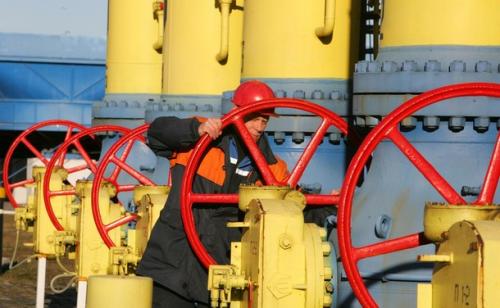
Yamal-Europe Two: A Gazprom Project That Poland Does Not Need
Publication: Eurasia Daily Monitor Volume: 10 Issue: 67
By:

Poland does not need another pipeline for Russian gas. The government has already signed long-term agreements with Russia in 2010, valid until 2022 for gas supply to Poland itself, and until 2019 for gas transit through the Yamal-Europe One pipeline via Poland to Germany (with prolongation options for both the supply and the transit agreements). Supplies from Russia and internal production fully cover Poland’s annual demand, which peaked at almost 16 bcm in 2012. Polish imports from Russia were stable at 10 billion cubic meters (bcm) per year in 2011 and 2012, according to Gazprom. Meanwhile, Poland extracts some 4.5 bcm annually from its own natural gas fields; is exploring its promising shale gas deposits in partnerships with Western companies; and is building the Swinoujscie liquefied natural gas (LNG) terminal on the Baltic coast (PAP, April 5, 8; Gazprom press release, April 8).
Poland is already an important transit country for Russian gas to Germany through the Yamal-Europe One pipeline. Owned by the Polish-Russian joint company EuroPolGaz (see below), this line with a capacity of 33 bcm per year is fully dedicated to supplying Poland and Germany. Additionally, Poland and Slovakia are building a bilateral, bi-directional interconnector pipeline with a capacity of 10 bcm per year, as part of a north-south European corridor planned and partially financed by the European Union. In sum, Poland’s economy hardly requires another Russian gas pipeline.
On April 5, Deputy Prime Minister and Economics Minister Janusz Piechocinski visited with Gazprom CEO Aleksei Miller in St. Petersburg to find out about the proposal’s specifics. According to Gazprom’s press release (April 5), Miller emphasized the revenue that Poland could earn from the transit of Russian gas diverted from Ukraine into Polish territory. Piechocinski opined that Poland should carefully abstain from becoming involved in this Russian-Ukrainian dispute, and instead express interest in the Russian project “as we would earn money on the transit.” He understood from Miller that this project could be completed by 2017–2018 (Polish Radio, PAP, April 5).
On April 5, EuroPolGaz CEO Miroslaw Dobrut signed with Miller in St. Petersburg a memorandum of understanding (MOU) to prepare a project feasibility study and deliver it within six months. The Yamal-Europe Two project would involve a pipeline with at least 15 bcm in annual capacity, to be built by 2018–2019 (and, presumably, owned and operated) as a Russian-Polish joint venture in Poland (Gazprom press release, April 8). In a televised statement, Miller expressed his assumption that Poland would ensure reliable transit of Russian gas to other Central European countries—i.e., circumventing Ukraine (Rossiya TV, April 5). The Russian government-owned ITAR-TASS news agency headlined (April 7) that Poland was going to replace Ukraine as a transit country for Russian gas. It was all orchestrated to increase the Ukrainian government’s nervousness.
According to all official reports, Miller received Piechocinski and Dobrut in St. Petersburg on the same day. By all appearances, Miller received the two Polish officials separately from one another, despite the Polish state being a major stakeholder in EuroPolGaz.
EuroPolGaz is the Polish-Russian mixed company that built (during the 1990s), owns and operates the Yamal-Europe One pipeline on Poland’s territory. This transit pipeline exists separately from Poland’s national pipeline network. EuroPolGaz’s ownership structure is convoluted, and its decisions are opaque to the public. Its move to sign the MOU with Gazprom stunned Poland. The government learned about the Gazprom-EuroPolGaz move from the mass media, although Poland’s state-controlled oil and gas company PGNiG (Polskie Gornictwo Naftowe i Gazownictwo) is co-equal with Gazprom in EuroPolGaz, and PGNiG’s senior executives hold half the seats on EuroPolGaz’s board. With this, Moscow has sprung two surprises on Poland within three days: the Putin-Miller proposal to build a pipeline in Poland without any prior notification to Warsaw, and the Gazprom-EuroPolGaz MOU.
Gazprom and PGNiG each hold 48 percent of the shares in EuroPolGaz. The balance of four percent is held by Gas-Trading, itself a consortium of several companies, which include a Gazprom subsidiary, a PGNiG subsidiary, and the Bartimpex trading company of the Polish tycoon Aleksander Gudzowaty, recently deceased. Like Gazprom, Bartimpex has “fervently supported the construction of the gas bypass pipeline [via Poland] to Slovakia,” according to a statement on the company’s website (https://www.bartimpex.com.pl, accessed April 9, 2013). Gazprom’s vice-president Aleksandr Medvedev and PGNiG’s CEO Grazyna Piotrowska-Oliwa are Chair and Deputy Chair, respectively, of EuroPolGaz’s Supervisory Board (www.europolgaz.com.pl, www.pgnig.pl, accessed April 8, 2013).
PGNiG, 72-percent-owned by the Polish state, and a co-equal shareholder with Gazprom in EuroPolGaz, seems nevertheless unable to prevent Gazprom from acting unilaterally in the name of EuroPolGaz as a whole. The Gazprom-EuroPolGaz MOU entangles PGNiG into this matter. If preparations begin, including the feasibility study, for construction of a Ukraine-bypass pipeline on Polish territory, would PGNiG (as a major shareholder of EuroPolGaz) become involved? Conversely, if PGNiG is counted out of it, this would look like an MOU between EuroPolGaz’s Gazprom side and Russia’s Gazprom—i.e., like a Gazprom-Gazprom MOU.
PGNiG has not distanced itself from the Gazprom-EuroPolGaz MOU. Instead, a statement from PGNiG’s management board says that the MOU’s signing by EuroPolGaz’s CEO Dobrut did not require approval by EuroPolGaz’s Supervisory Board (and ostensibly, no approval by board chairman Medvedev) and therefore did not need approval by PGNiG’s representatives on that board either (www.pgnig.pl, accessed April 9). Dobrut himself was, until 2010, a deputy-CEO of PGNiG. From that company’s statement it would seem that Polish members of EuroPolGaz’s supervisory board simply stand aside when the company’s top management acts unilaterally in line with Gazprom’s interests in Poland.




